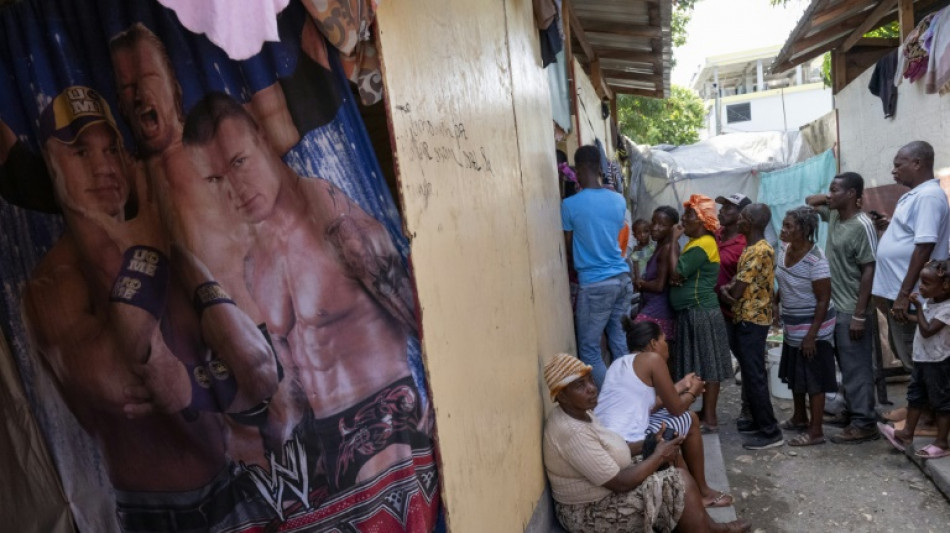
BCC
-1.2000


Suffering from gunshot wounds to the leg and buttocks, 31-year-old Olivier Vilminio sought treatment in a hospital in Haiti's capital, Port-au-Prince.
But even there, he was not safe from a surge of gang violence that has upended life in the impoverished Caribbean nation and made medical care even more difficult to attain.
Armed gang members raided the hospital, forcing Vilminio to flee, he told AFP recently from a school where he and other displaced people now reside.
Needing crutches to walk, the father of two young daughters said his wounds have left him in constant pain.
"I've run out of medication. The painkiller I should be taking is (the powerful opioid) tramadol, and it's extremely expensive, 750 Haitian gourdes a pack," he said, or around $6.5.
He said he hoped to possibly get antibiotics from Alima, an NGO operating mobile medical units that was visiting the school-turned-refuge that morning.
After years of gaining ground across Haiti's capital, gangs launched a wave of coordinated attacks in late February calling for then prime minister Ariel Henry to resign.
He announced in early March that he would step down and hand executive power to a transitional council responsible for leading the country toward elections. No vote has been held in Haiti since 2016.
A new prime minister and cabinet have since taken office, but their task of restoring order in the nation of 10 million is monumental.
- No power, money for X-rays -
Gangs control most of the sprawling capital and have repeatedly attacked hospitals and clinics, making off with much-needed medical supplies.
The UN International Organization for Migration (IOM) said Tuesday that about 580,000 Haitians have now fled their homes due to gang violence, a 60 percent spike since March.
Another gunshot victim at the center is Marie Joanne Laguerre, 24, who took a stray bullet to the back of her head while standing outside the school.
"At first, I thought I'd been hit by a stone," she told AFP.
Three months later, she still has not been able to get an X-ray.
"I went to the hospital and they bandaged me up, they gave me medicine" but not an X-ray, she said, as there was a power outage that day.
"Now I have no money to do it. I still don't know what's inside my head."
The hospitals that remain open in Haiti are struggling to stay afloat, frequently facing shortages of fuel for their generators and other materials.
Jean Philippe Lerbourg, medical director of Hopital La Paix, told AFP he considers his establishment "lucky" to have all its services remain open.
But since February the hospital has been "under pressure," taking in patients from other locations that have been forced to close, the doctor said.
- Hospitals over capacity -
"We exceeded our capacity a long time ago," Lerbourg said, adding that budget constraints have forced the hospital -- a public facility -- to charge patients for medical equipment.
"We try to do as much as possible to give free emergency care... but once emergency care is over, if you come in for surgery, you don't pay the surgeon, but all the materials you'll need, you're going to have to buy," he said.
For most Haitians "the situation is extremely difficult," he said, with many patients displaced from their homes or freshly unemployed.
Lerbourg said his hospital saw a peak in gunshot wound cases on February 29, the day armed gangs launched their concerted attacks.
Sitting on a hospital bed, 40-year-old Vilsaint Lindor has a large bandage wrapped around his waist.
A few days earlier, he was at home and about to take a shower, when a gunman knocked on his door.
The man "asked me to give him everything -- phone, computer, money," Lindor said.
"They took everything and when they couldn't take the inverter, he shot me," he said bitterly.
"I'm just at home, and the gangs come and rob me."
S.Fujimoto--JT